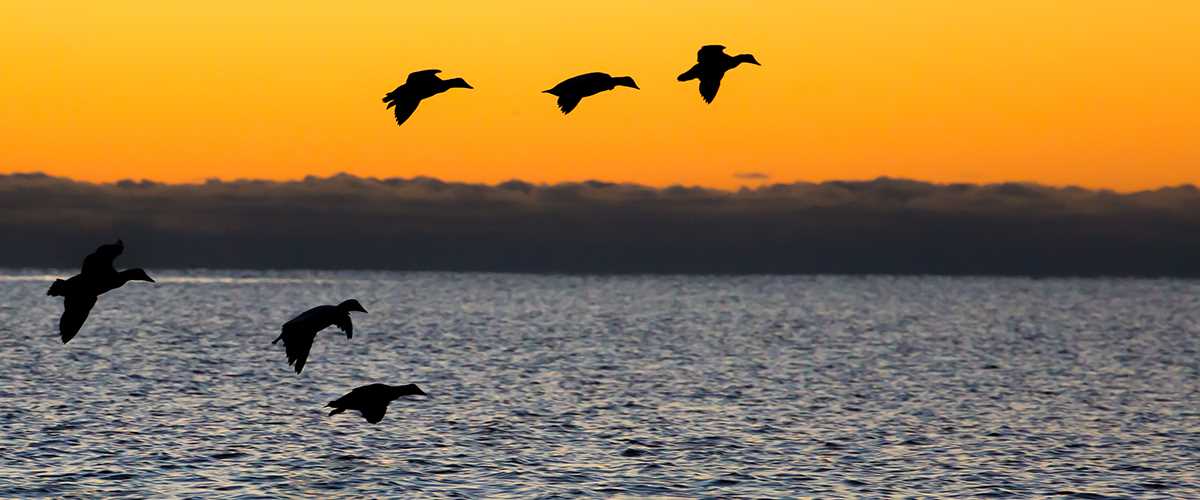Conserving the Future
Landowners are using conservation easements to permanently protect wildlife habitat on their property

By David Marrone
Government agencies have successfully protected millions of acres of wildlife habitat across North America as national parks, national wildlife refuges, wildlife management areas, and other conservation lands. While acquiring land for public ownership and use is obviously an important way to conserve habitat, the vast majority of undeveloped land—including 75 percent of the nation's remaining wetlands—is privately owned. To help protect these vital habitats for waterfowl and other wildlife, conservationists must find ways to compensate private landowners for good stewardship. This is especially true in this era of skyrocketing land values when landowners are facing increasing development pressure.
A highly effective tool for conserving wildlife habitat on private lands is the conservation easement. This is a legal agreement in which landowners voluntarily restrict certain development rights on their property through a contractual obligation (conservation easement) that is held by a qualified conservation organization or government agency. Conservation easement restrictions are tailored to the conservation values (wildlife habitat, open space, etc.) and characteristics of a particular property and to the owner's personal financial needs and conservation goals.
For example, many conservation easements are designed to protect the natural integrity of the land and to prevent industrial or commercial development in perpetuity. The restrictions are permanent, so properties protected by conservation easements will remain undeveloped regardless of future ownership. In most cases, easements also allow landowners to continue to use their property for hunting, fishing, agriculture, and silviculture. Each easement donor is asked to make a cash donation to cover the expense of all future monitoring of the easement. According to the Land Trust Alliance, more than 1,500 land trusts across the United States have protected more than 5 million acres with conservation easements. Ducks Unlimited holds conservation easements on more than 237,000 acres of privately owned wetlands and associated uplands throughout the United States.
In addition to permanently protecting wildlife habitat, conservation easements often provide landowners significant tax savings. Donors of a qualified conservation easement can take a charitable deduction against their federal income taxes based on the value of the rights they have restricted. Conservation easements are also an effective way to reduce estate tax burdens and can be claimed as a credit on some state income tax returns. Of course, all conservation easement donors should consult legal counsel and a certified accountant to ensure they are in compliance with all state and federal tax codes before claiming easement values on their tax returns.
Recently there have been a few instances where unscrupulous individuals have intentionally overvalued conservation easements to achieve illegal tax breaks. Unfortunately, these incidents have been widely publicized in the media and have cast a negative light on conservation easements. Tougher regulations should preclude any future impropriety involving conservation easements, and the fact remains that the vast majority of conservation easements are a good value for wildlife and taxpayers.
The U.S. Congress, in fact, is considering legislation that will increase the tax benefits provided by conservation easements. Under current law, donors can typically deduct the value of a conservation easement against 30 percent of their adjusted gross income (AGI) for as many as six years. Proposed legislation would increase the deduction to 50 percent of AGI (100 percent for farmers and ranchers) over a 16-year period. During the last legislative session, the Senate passed these new provisions, but the House did not. The legislation is now in the hands of a joint congressional committee that should agree on a compromise in 2006. For more information about conservation easements, call your nearest DU regional office or DU national headquarters at 901-758-3825, or visit DU online at https://www.ducks.org.
